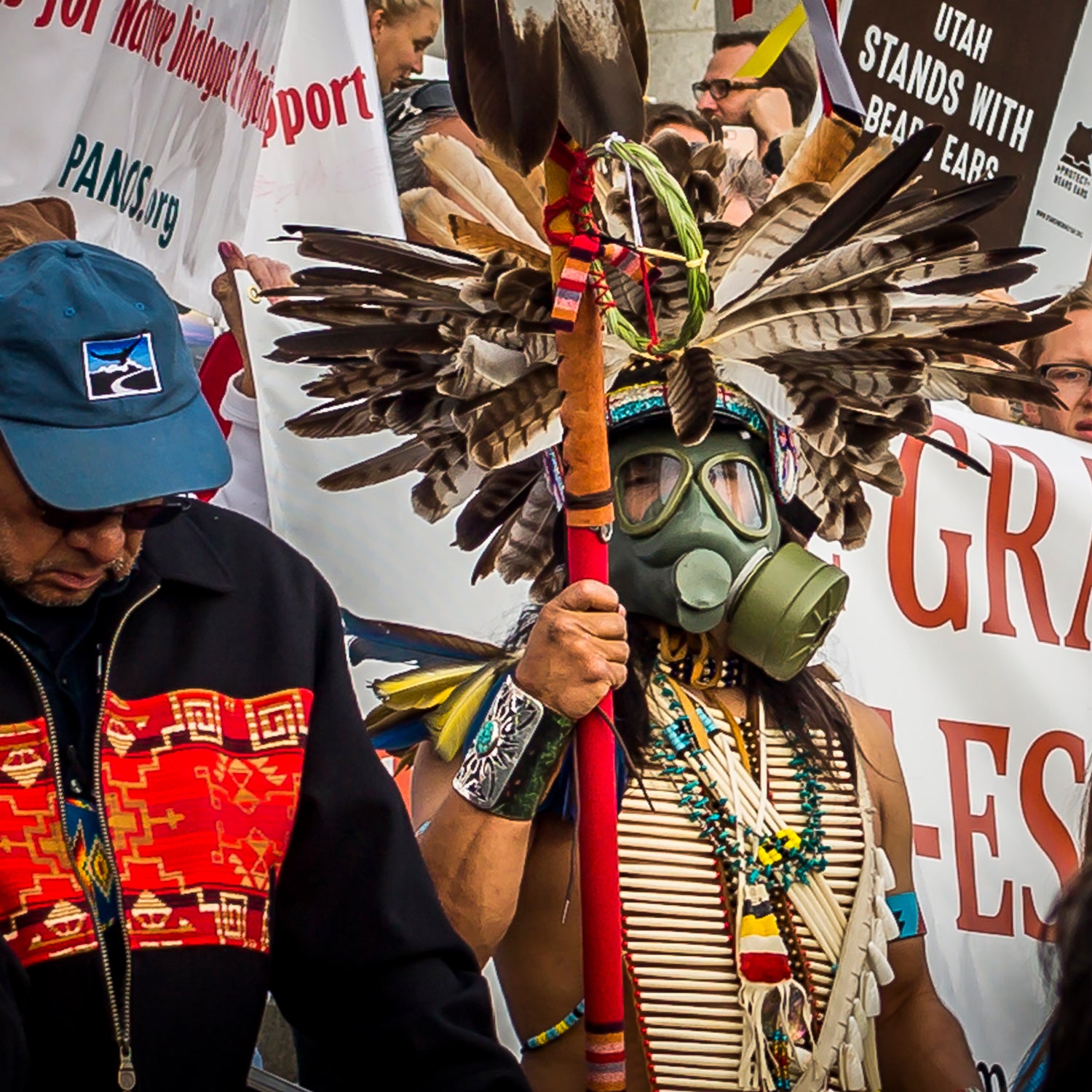To heal from within, the Hopi, Navajo, Ute Indian Tribe, the Pueblo of Zuni, and the Ute Mountain Ute Tribe all put past grievances aside to seek a common goal: Protect the Bears Ears region in southeastern Utah.
Healing was at the center of the movement: to preserve and advocate for continued access to the indigenous homelands of our ancestors, the lands that tie their stories of heritage to ours. The land, water, air, animals, and people are what our elders requested the five tribes to support with prayers and ceremony. They’re what elected tribal leaders sought to protect with law. The traditional and scientific knowledge of the region validated this importance. With each trip we made to Washington, D.C., to ask the federal government to protect this land, a prayer was offered.
On December 28, 2016, former President Barack Obama designated 1.35 million acres as the Bears Ears National Monument. The designation promised to protect the site’s breathtaking beauty and precious ecosystems. It also reassured us that our historical and spiritual connection to this landscape would be preserved for all time. The decision made on that historic day represented a successful transformation of the relationship between the U.S. and tribal governments. It was the first tribal-led push for a national monument. It had taken years. It was also the first time a group of tribal nations would share in the oversight of land that once belonged to them, establishing a commission where traditional knowledge would become a strong presence in management plans.
It is disturbing then to imagine that one day—December 4, 2017—could profoundly set back the historical, deep healing between the five tribes and the federal government. The five tribes requested use of the Antiquities Act as a solution for protection instead of waiting for a solution to be prescribed to them, as had been done with reservation boundaries in the past.
The open and clear conversations from our governments to the White House and to the Department of Interior disappeared.
Now that the boundaries of Bears Ears will be reduced by more than 80 percent, the risk of new land leases and permits for mining oil and gas will rise. In the name of economic development, protection of the land will be rolled back. The fragile ecosystems and water supplies will be in jeopardy, and, as many know, water is precious in the West. We have officially entered into a time that our ancestors and elders spoke of—of betrayal and broken promises.
The time, energy, and resources invested while working alongside President Obama’s administration was an amazing experience. Under the Trump administration, hope turned to frustration. The open and clear conversations from our governments to the White House and to the Department of Interior disappeared. They returned to the old ways of tribes being disregarded and oppressed. Yesterday, we were flooded with hundreds of years of memories.
When Interior Secretary Ryan Zinke visited Utah this summer, the five tribes had to fight for just one hour of his time. What happened to the respect of the indigenous sovereign voices? The sovereign voice that is written into the U.S. Constitution? He did not listen to us because he did not want to hear what we had to say. Instead, he gave his ear to representatives of the energy industry.
Twenty-seven million acres of BLM land are currently under lease to oil and gas companies in the United States— are sitting idle. Twenty years of coal reserves are under lease on public lands. Interior Secretary Zinke was guided through the Bears Ears region by anti-monument advocates, engaging almost exclusively with energy industry representatives. It is heartbreaking to know that the final resting places of our ancestors, preservation of Puebloan structures, the fragile ecological systems, and the stories written on the land and canyon walls will be auctioned off for destruction and disregarded for the sake of industrial development.
The indigenous people of the United States have always held a strong relationship with the land. Our land is part of our identity, language, culture, and ceremony. Our healers and medicine people collected medicinal herbs and conducted ceremonies for the sick and injured out on the landscape. Our mothers and grandmothers buried the umbilical cords of our babies in the land. We bathed our babies in the snow so they will be resilient and strong-spirited. We never owned any aspect of the land; ownership and possession was a learned behavior after the coming of the nonindigenous people. We live in relationship with our surroundings and the elements, in prayer and everyday living. We are merely humans here to care for our families and the land, and to prepare for the next seven generations.
Regina Lopez-Whiteskunk is a former co-chairwoman of the Bears Ears Inter-Tribal Coalition and a former tribal leader of the Ute Mountain Ute Tribe.


